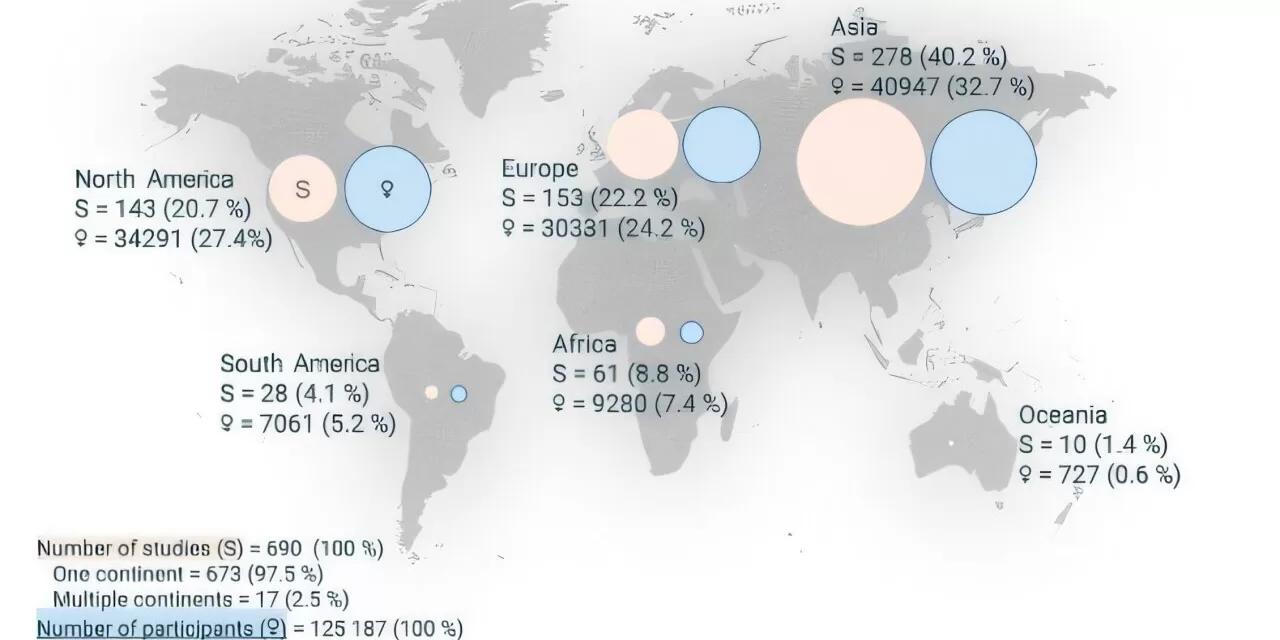February 6, 2025 – A groundbreaking international initiative is shedding light on the complexities of the vaginal microbiome and its impact on health.
Vaginas host a dynamic ecosystem of bacteria and yeasts, but our understanding of these microbial communities remains limited. Research has predominantly focused on populations from a single continent, leaving significant geographical gaps in data. To bridge this knowledge divide, scientists from around the world have formed a “sisterhood” of citizen scientists, working collaboratively to study the diversity of vaginal microbiomes across different regions and cultures.
A Global Effort for Women’s Health
In a paper published in Trends in Microbiology, researchers emphasize the need for international cooperation to understand which bacteria are beneficial or harmful and how vaginal microbiomes differ globally. The study, authored by scientists from nine countries across four continents, is led by Sarah Lebeer of the University of Antwerp in Belgium.
“Women’s health is essential to global societal and economic well-being, yet health disparities remain prevalent,” write the researchers. “For centuries, knowledge concerning women’s health has been neglected, controlled, and persecuted, resulting in a disparity that persists today.”
The study is based on data from the Isala Sisterhood, a citizen science initiative that evolved from the Isala Project, originally launched in Belgium with over 6,000 participants. The initiative has since expanded across North America, South America, Asia, Africa, and Europe, bringing together microbiologists, healthcare professionals, government organizations, and the general public.
Key Findings on Vaginal Microbiota
The researchers compiled nearly 100 years of studies along with insights from the Isala Sisterhood and other similar initiatives. Their findings highlight five common categories of “healthy” vaginal microbiotas, each characterized by a dominant bacterial species, such as Lactobacillus crispatus or Lactobacillus gasseri. However, in Belgium, over 10% of participants fell outside these established categories, suggesting that vaginal microbiomes are more complex than previously thought.
A well-balanced vaginal microbiota plays a crucial role in preventing health issues such as bacterial vaginosis, urinary tract infections, and preterm birth. A decline in lactobacilli can lead to an overgrowth of harmful bacteria, increasing the risk of these conditions. Current treatments, such as antibiotics, often have limited effectiveness, with symptoms recurring in up to 60% of cases. Researchers suggest that live biotherapeutic products, which use beneficial microorganisms, may offer a more effective alternative.
The Role of Culture and Geography in Vaginal Health
The study also highlights how cultural practices, such as vaginal douching, may contribute to microbiome imbalances. This underscores the need to examine both biological and social factors when studying vaginal health disparities. The authors stress that lower- and middle-income countries are underrepresented in microbiome research due to financial and technological barriers. They advocate for international collaborations that pool resources and expertise to address these challenges.
Moving Forward: Closing the Data Gap
Projects like the Isala Sisterhood and the Vaginal Human Microbiome Project in the U.S. are working to map vaginal microbiomes across diverse ethnic and geographical backgrounds. The authors emphasize that ongoing research must prioritize diversity and inclusivity, considering both social and economic influences.
“To improve preventive, diagnostic, and therapeutic strategies for conditions associated with the vaginal microbiota, more research is urgently needed in diverse populations around the world,” the study concludes. “Only by doing so can we truly understand what constitutes a healthy vaginal microbiome in different geographic locations.”
As efforts to close the vaginal microbiome data gap continue, researchers hope their findings will pave the way for more personalized and effective healthcare solutions for women worldwide.
Disclaimer: This article is based on findings from the study published in Trends in Microbiology and does not constitute medical advice. Readers should consult healthcare professionals for concerns regarding vaginal health.











